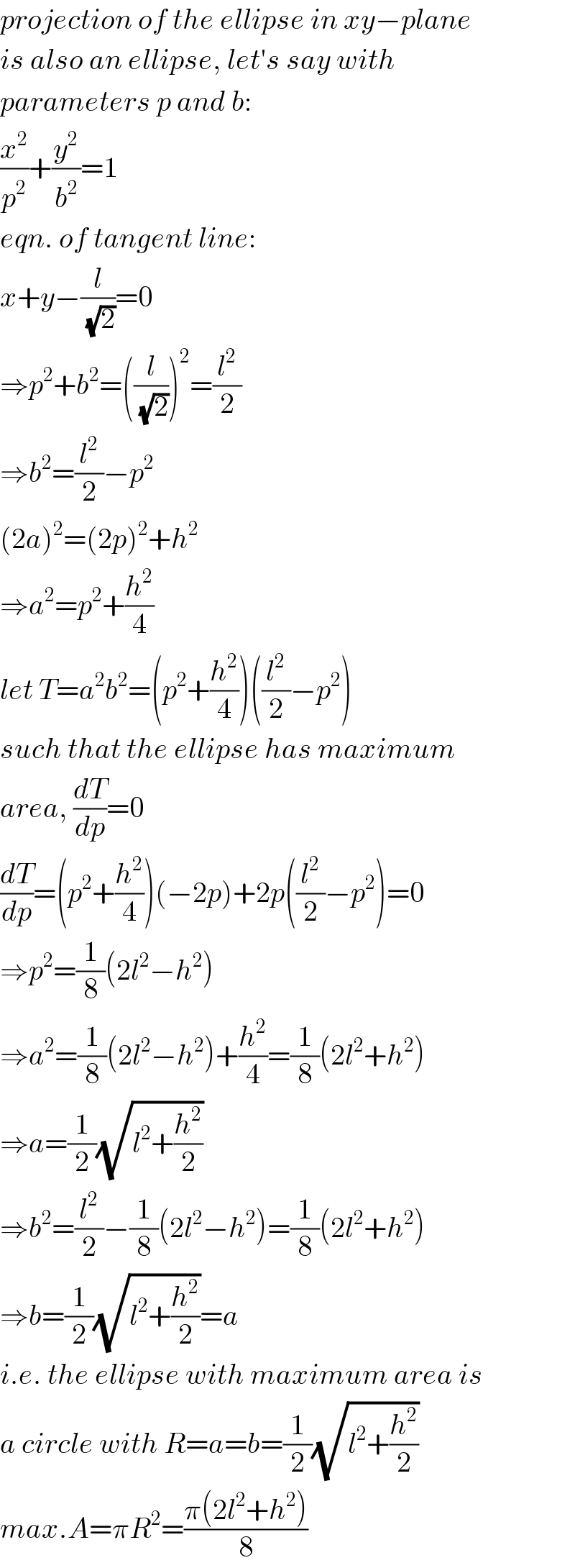
Question and Answers Forum
Question Number 49696 by ajfour last updated on 09/Dec/18

Commented by ajfour last updated on 09/Dec/18

Answered by mr W last updated on 09/Dec/18

Commented by mr W last updated on 09/Dec/18

Commented by ajfour last updated on 09/Dec/18

